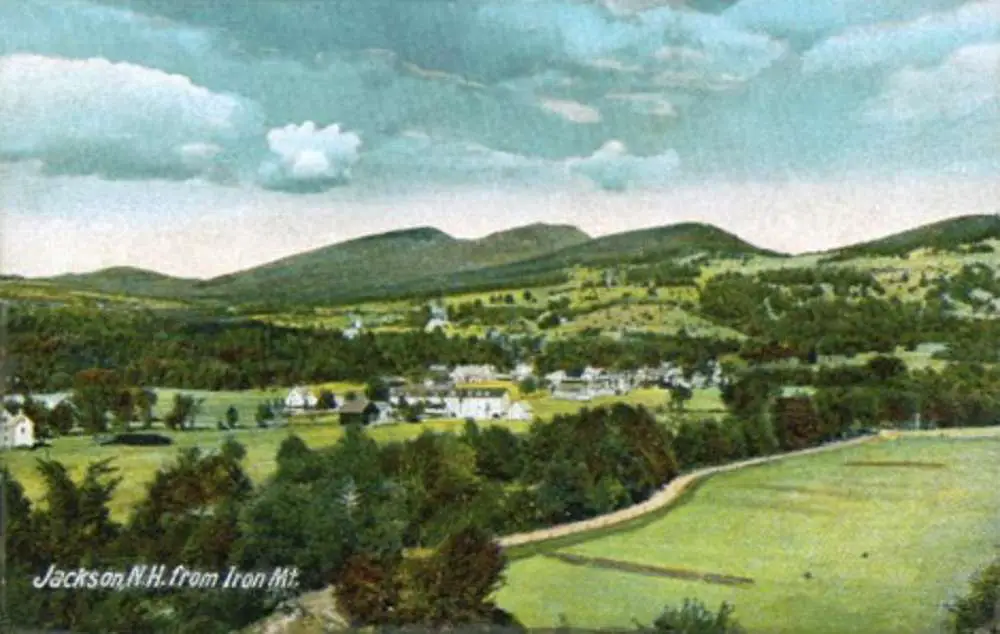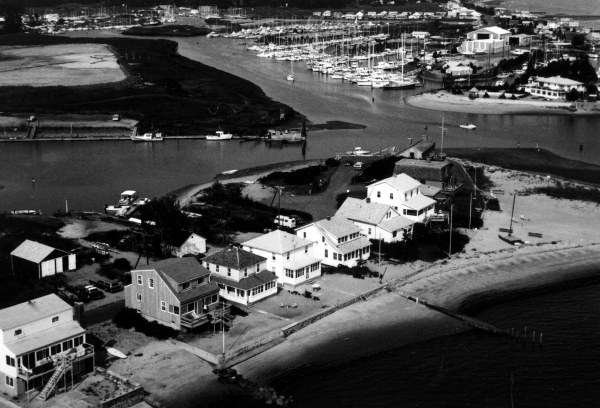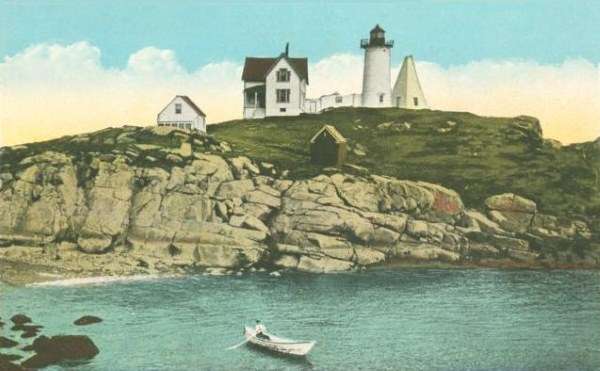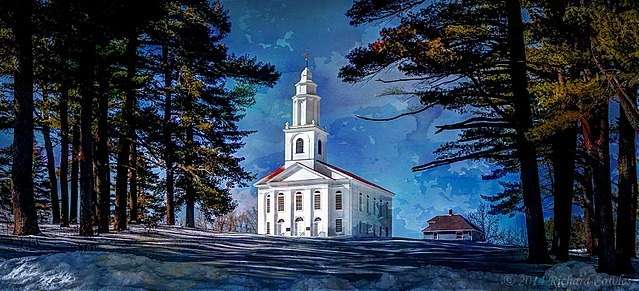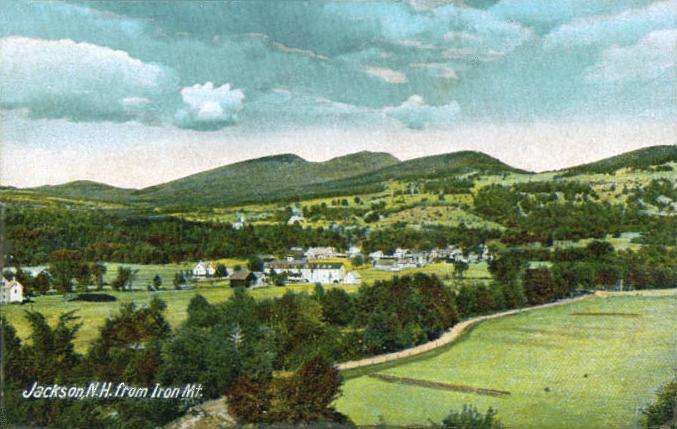Many New England cities and towns have been renamed over the years. When the European settlers arrived, they usually changed Indian names to those from their home country. And then they sometimes renamed a place again.
The Puritans, for example, first called Boston Trimontaine after the three hills on the peninsula. John Winthrop soon renamed the town Boston after the hometown of several prominent colonists. The new name would fit better, as Bostonians eventually cut down their three hills.
Townspeople, though, sometimes renamed themselves because they didn’t like what the old name represented. Sometimes they didn’t have a choice, as when a new authority arrived and tried to assert his power over a town.
Here, then, are six towns renamed for spite. If you know of any others, please mention them in the comments section.
Pochoug, Conn.
Westbrook, Conn., originally belonged to Saybrook, which came under attack by Indians during the Pequot War. When the Pequot threat ended, about 40 families moved to West Saybrook to an area known by the Indian name of Pochoug. The word meant ‘place where the river divides,’ and refers to the Patchogue and the Menunketesuck rivers.
In 1810, the town petitioned the General Assembly to rename it Westbrook. The petition noted that ever since the first settlement it had ‘retained the Indian name of Poochague or Poorchague, which name it is believed very few if any, can either spell or pronounce correctly.’ The name was said to be ‘inconvenient to the said inhabitants and to the public.’
Connecticut is full of towns with portmanteau names, and ‘Westbrook’ probably derived from ‘West Saybrook.’ However, we note that Col. Thomas Westbrook had fought Indians during Father Rale’s War.
Gorgeana, Maine
When King James I in 1620 gave Sir Fernando Gorges a patent to colonize the New World, Gorges thought that included Massachusetts. After all, the king had specified he was to ‘plant, rule, order and govern’ all the land between New France and Virginia.
Gorges, an Anglican and a Royalist, began by financing the settlement of Maine. He hoped to turn it into a series of feudal plantations, and he named one settlement after himself — Gorgeana.
Maine’s neighbor, Puritan Massachusetts, grew in population, wealth and power. Anglican Maine did not. So by 1658, the Puritans from Massachusetts went town by town to persuade what is now Maine to join Massachusetts.
Names carried great importance to the early New England Puritans. And so when Gorgeana agreed to join Massachusetts, the Puritans decided to rename it York. The name York carried a special sting because it was the name of a Royalist city in England that fell to the Puritan Parliament during the English Civil War.
New Glasgow, Mass.
Scots-Irish families first came to Blandford in 1735 and called their settlement ‘New Glasgow.’ They had good reason: The people of Glasgow, Scotland, had promised them a church bell if they named their town after them.
The colonists of Massachusetts Bay only tolerated the Scots-Irish because they provided a useful buffer against hostile Indians on the frontier. In 1741, the settlers petitioned royal Gov. William Shirley for incorporation as the Town of New Glasgow. Shirley instead renamed the town Blandford, supposedly for the ship that had just carried him to Boston.
But what did Shirley have against Glasgow? He probably wasn’t keen to recognize the Scottish city. After all, enraged Glaswegians had recently rioted against a malt tax, driven out the British military and destroyed the home of their parliamentary representative.
Blandford didn’t get its bell.
Adams, N.H.
Nestled in the White Mountains near Maine’s border, Jackson, N.H., was originally named New Madbury after the Seacoast town from which its first settlers came. The town renamed itself Adams in 1800 to honor John Adams, just elected president as a Federalist Party member.
But then two Democratic-Republicans won election — Benjamin Pierce as governor of New Hampshire in 1827 and Andrew Jackson as president in 1829. Rivalry between the Federalists and the Democratic-Republicans could get fierce. So when Adams, N.H., petitioned the General Court for incorporation as a town in 1829, Pierce brought to bear his influence. Adams was renamed Jackson.
Haversham, R.I.
In 1684, British authorites sought to assert their control over their colonies in New England. They annulled the colonial charters and combined the colonies into the Dominion of New England. In 1686 they appointed Joseph Dudley, a native of Roxbury, Mass., as president of the Council of New England, which included Massachusetts, New Hampshire, Maine and the Narragansett Country in Rhode Island.
Dudley had a tough time of it. Magistrates and military officers refused to serve and Puritan leaders ignored him. He traveled to Narragansett to establish his authority there, and he renamed Westerly ‘Haversham,’ Kingstown ‘Rochester’ and Greenwich ‘Dedford.’
Sir Edmund Andros took over from Dudley with the added territory of Connecticut and Rhode Island. He didn’t last long, only until 1689, when Bostonians sent him packing. In England, a new king took the throne and restored the colonial governments. Haversham was renamed Westerly.
Sodom, Vt.
Back in the day, quarrying often used to attract rough men who enjoyed women and liquor when they weren’t blasting rock. Sodom, an unincorporated village in the central Vermont town of Calais, was apparently one such place. Sodom had several active quarries, but no church.
According to lore, a local preacher pounded his fist on the pulpit and said, “I am adamant that we change the name of this town!” Citizens in 1905 petitioned the Legislature to change the name, and Sodom was renamed Adamant.
Village boosters say the name was chosen to reflect the hardness of granite. We like the other explanation better, though.
Images: The White Church, Blandford, Mass. By Rhcowles – Own work, CC BY-SA 3.0, https://commons.wikimedia.org/w/index.php?curid=31505090; Sodom, Vt. By Erikamit – Own work, CC BY-SA 4.0, https://commons.wikimedia.org/w/index.php?curid=39732709. This story was updated in 2023.
